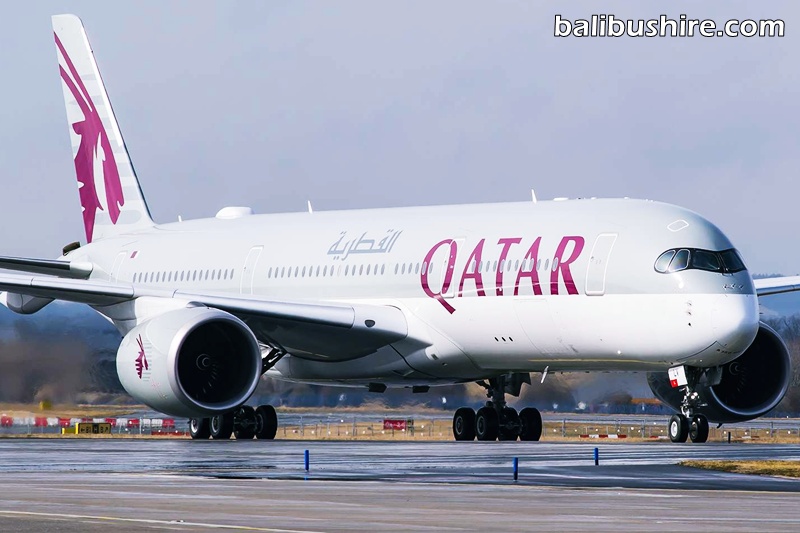Friday | August 8, 2025
Brisbane, Australia — Five Australian women have won a significant legal battle, securing the right to sue Qatar Airways over what they describe as a traumatic and deeply invasive ordeal at Doha’s Hamad International Airport in 2020. The decision came after Australia’s Federal Court upheld their appeal, overturning an earlier ruling that had blocked their case from proceeding under international aviation law.
The women — whose identities remain confidential due to the highly sensitive nature of the incident — were among dozens of female passengers removed from multiple flights and subjected to forced bodily examinations. Their lawyer, Damian Sturzaker of Marque Lawyers, said the women were singled out after the discovery of a newborn baby girl abandoned in an airport bathroom. The infant, according to Qatari officials, had been found wrapped in plastic and hidden in a rubbish bin in what was described as “a shocking and appalling attempt to kill her.”
At the time, the Qatari government defended the actions of its security personnel, claiming the searches were conducted in an urgent attempt to prevent the “perpetrators” from fleeing the country. Officials later issued a public apology for the distress caused but stopped short of admitting wrongdoing or offering compensation.
The 2020 incident sparked international outrage and was widely condemned by governments and human rights organizations. Australia’s then–Foreign Minister called the searches “grossly disturbing, offensive, and deeply concerning,” noting that such treatment of passengers was unprecedented and unacceptable in modern air travel.
Exactly how many women were examined remains unclear, but the Australian government said up to 10 flights may have been affected that night. On Qatar Airways Flight 908 bound for Sydney alone, 13 Australian women were taken off the aircraft and subjected to the invasive procedures — five of them are now plaintiffs in the ongoing case.
The crux of Thursday’s Federal Court ruling lies in the application of the Montreal Convention, a key international treaty governing airline liability for injuries sustained by passengers during international air travel. Article 17 of the treaty states that carriers are liable for damages in cases of death or bodily injury suffered on board an aircraft, or while embarking or disembarking.
In the original case, the judge dismissed the Montreal Convention’s relevance, concluding the searches fell outside its scope. But the appeal judges unanimously disagreed, ruling that the lower court had erred in dismissing the argument. The plaintiffs’ legal team has consistently argued that the women’s “journey had never ended,” pointing out that they were forcibly removed from the plane at gunpoint, taken to an ambulance positioned under the aircraft’s wing, subjected to invasive medical examinations, and then returned to their seats before departure.
“Of course the journey had never ended,” Sturzaker said. “They were still in the process of embarking or disembarking — this was all part of their travel experience, and the trauma occurred during that time.”
The ruling allows the women to pursue not only their claim under the Montreal Convention but also a negligence claim against Qatar Airways — a move that could significantly increase any eventual damages payout. In addition, the plaintiffs had sought to bring claims of negligence, assault, false imprisonment, and battery against MATAR, the airport’s operator, and the Qatar Civil Aviation Authority (QCAA).
While Thursday’s decision ends their legal action against the QCAA, it leaves room for the women to amend certain aspects of their case against MATAR. Sturzaker said they will closely examine the reasoning behind the QCAA dismissal to determine whether there is a viable path to appeal to the High Court of Australia.
One key unresolved question is who exactly ordered the searches — a fact that remains unknown nearly five years later. “We don’t have perfect insight into the chain of responsibility,” Sturzaker said. “Many of the documents we requested were withheld, so part of this case will involve uncovering that missing information.”
Following the 2020 incident, Qatari prosecutors announced that an unspecified number of airport security staff had been charged over their role in the examinations. Authorities also claimed to have identified and charged the baby’s mother — described only as an Asian national — with attempted murder. She had reportedly left the country before her arrest could be made.
In Qatar, sex outside of marriage is illegal, and unmarried mothers often face imprisonment if discovered. Human rights observers note that this harsh legal environment frequently drives women to abandon newborns in an attempt to avoid prosecution.
For Sturzaker, the official response to the discovery of the abandoned baby was “wildly out of proportion,” turning a tragic situation into an international scandal. “It’s not something you would ever see in an airport you would commonly want to travel to,” he said.
With the appeal now decided in their favor, the women’s case is expected to proceed to trial next year — a proceeding likely to be closely watched not only in Australia and Qatar but also by the global aviation and human rights communities.

